First ETH4D Research to Action Projects
Students and young researchers from ETH Zurich are putting their research into practice! Projects include innovation platform meetings and transdisciplinary stakeholder workshop for dynamic agroforestry systems for sustainable cocoa cultivation in Ghana, testing a prototype of a portable solar-cart in India, and developing a model for industry partnerships for an initiative that aims to provide education everywhere by giving research equipment a second life. Learn more about the projects!
Discussing dynamic agroforestry (DAF) as a regenerative way to produce cocoa in Ghana with a diverse group of stakeholders (DisDAF)
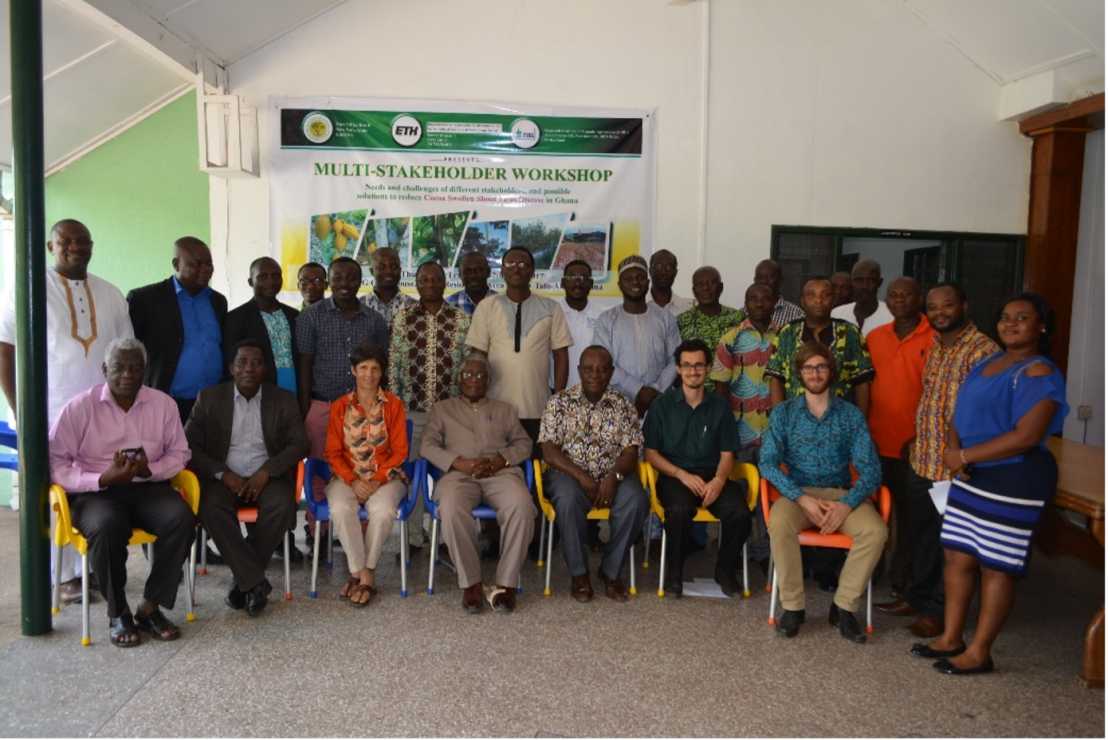
Project Lead: Dr. Christian Andres
"The DisDAF project puts 3.5 years of Dr. Andres' postdoctoral research on dynamic agroforestry systems (DAFS) for sustainable cocoa (Theobroma cacao) cultivation into action by organizing innovation platform meetings and a transdisciplinary stakeholder workshop.
While the former discusses research results and their interpretation with relevant stakeholders and advises on the development of local DAFS recommendations, the latter will elaborate a strategy to incorporate these recommendations into national extension programs of COCOBOD (Ghana Cocoa Board). Current cocoa cultivation in the West African context is highly vulnerable to external shocks, especially climate-related ones such as higher temperatures as well as longer and more sever dry seasons. Therefore, it is of utmost importance to develop diversified, farmer-driven cocoa production systems that are resilient to these shocks and reduce the need for external inputs such as water, pesticides and fertilizers. DAFS are one promising approach to tackle these issues and we expect the DisDAF project to deliver key insights on the feasibility of this production method for local producers in West Africa."
Real-World Deployment and Evaluation of the Kwame AI Teaching Assistant for SuaCode Courses
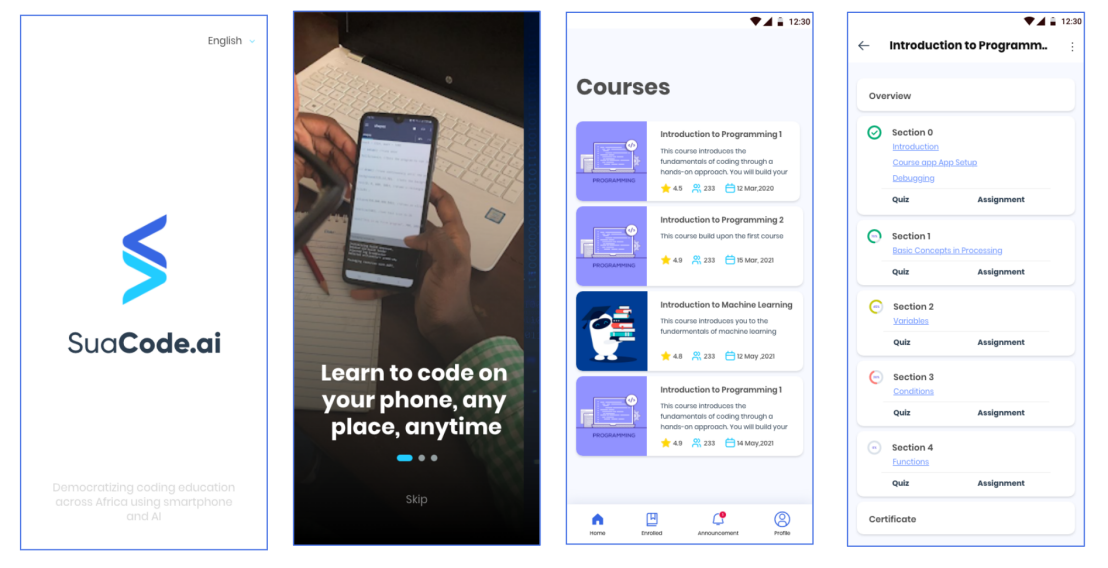
Project lead: George Boateng
Project page: external page SuaCode
"SuaCode.ai is an AI-powered, smartphone app to teach coding. The app will have monthly online coding courses with lesson notes, exercises, quizzes, and fun coding assignments in major official languages in Africa such as English and French. The assignments will be graded by our automated grading software which also checks for plagiarism and provides individualized feedback to students. The course-specific online forums allow interactive discussions among students while getting answers from other students, facilitators, and our AI teaching Assistant, Kwame. Students that complete receive certificates and mentoring by African Software Engineers. The SuaCode.ai project will enable me to extend my research developing the Kwame AI teaching assistant by integrating Kwame into the app and performing evaluations in a live coding course. SuaCode.ai will enable young people across Africa who don’t have access to computers to learn to code using smartphones and consequently improve their career and economic prospects."
From bird’s eye views to joint landscape visions
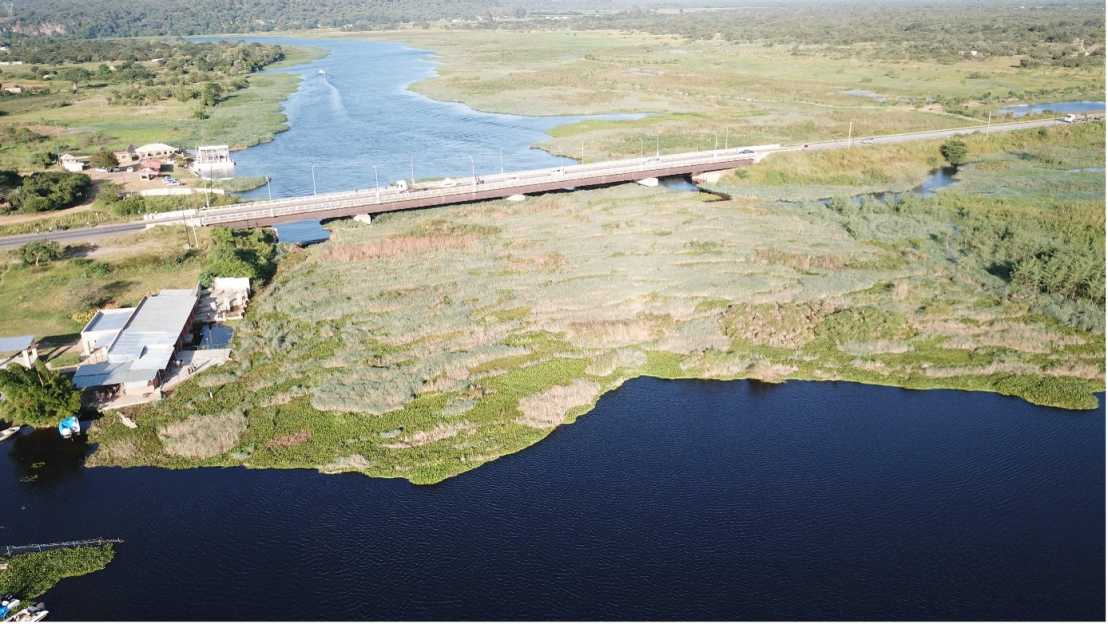
Project lead: Dr. Fritz Kleinschroth
"Drones are a controversial, yet increasingly used research tool, allowing to capture aerial imagery at high resolutions for relatively low costs. As part of the ETH-led DAFNE project and in collaboration with University of Zambia, we have collected drone imagery of Zambian rivers and wetlands to study links between land use, ecosystems, and water quality. During the research, we realized that these kinds of images have high potentials for research communication as they show landscapes from a different perspective and are more easily interpretable than maps and satellite images with lower resolutions. With the ETH4D Research to Action Grant, we propose to bring the drone images back to the field, both in printed and in digital form. Based on this, we aim to engage in a dialogue with water and land resource managers, farmers, and other stakeholders to understand their perceptions of this kind of imagery and to document the do’s and don’ts of drone-based data collection."
SolarCart – a portable solar-powered cart to disseminate essential technologies at the last mile
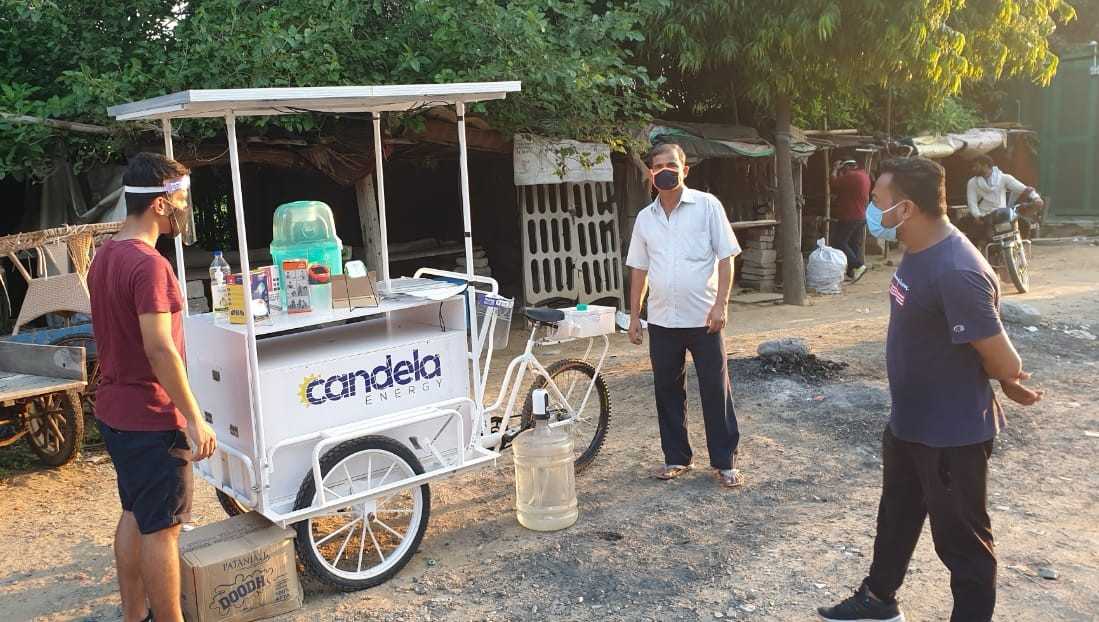
Project lead: external page Amartya Mukherjee
Project page: external page Candela Energy
"Candela Energy's goal is to bridge the gaps in the unsustainable last-mile delivery market in developing nations, to enable vulnerable communities to climb up the socioeconomic ladder. We aim to do so through an inclusive last-mile network created by a physical, interactive medium; our Solar Cart. "Difficult-to-reach" communities can now connect to life-improving solutions developed by social enterprises while also getting access to onboard essential services of clean water, electricity, and the internet. Researches conducted by the team on sustainable technologies and rural communities have highlighted the lack of an inclusive approach and the dearth of user-centric need-fulfillment as key issues. After conducting small-scale pilots in peri-urban regions and refugee camps of Indian metropolitan cities, the ETH4D research to action grant will allow us to conduct a full-scale pilot in remote marginalized communities."
EquipSent - Enable Education Everywhere
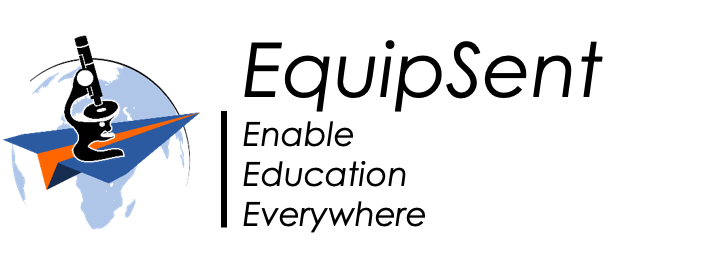
Project lead: external page Dorothea Wiebecke
Project page: external page EquipSent
"The lack of access to equipment for practical education in STEM fields limits high quality education globally. At the same time, laboratories at companies and institutions in high-income countries have out-of-use equipment, which is frequently disposed of ahead of its full life cycle. EquipSent aims to bridge this gap by collecting functional equipment from donors and matching it for transfer to receivers with limited access. Since our founding in 2017 by current and former students and academic staff at ETH, we have successfully completed three cases and delivered over 100’000 CHF worth of equipment from which more than 800 students per year benefit at schools and universities in Bosnia, Congo and Liberia. With the grant from ETH4D, we aim to professionalize our corporate identity and develop a CSR product to attract more donations from industry, establishing long-term partnerships."